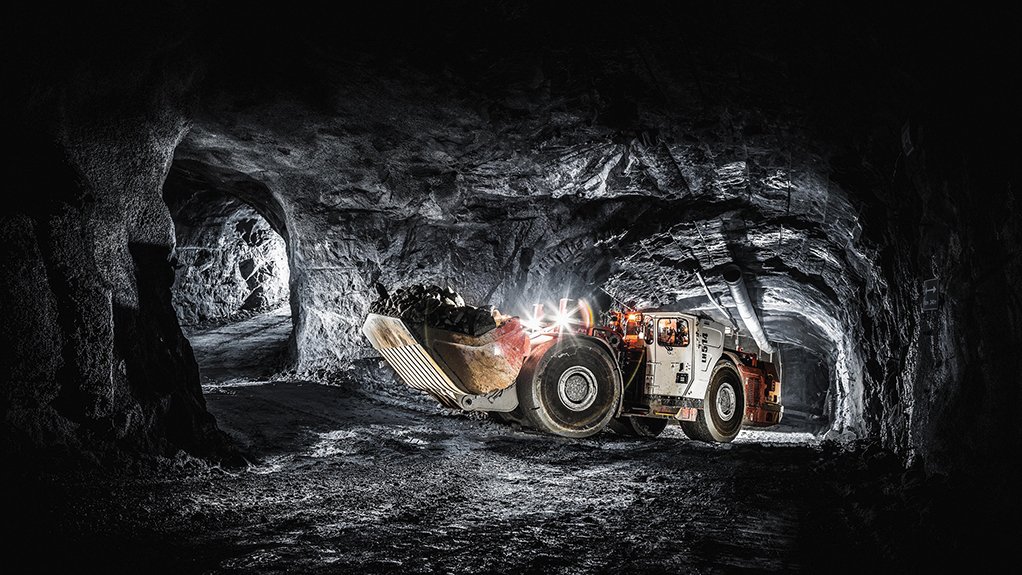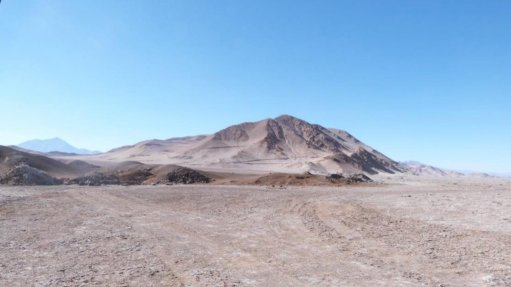Minerals Council notes easing of mining input cost increases in September
The Minerals Council South Africa’s index for mining input costs showed continued easing in September, with a year-on-year increase of 3.6%, down from 5.2% in August.
This downward trend is accompanied by a significant moderation in Statistics South Africa’s producer price index (PPI) for September, registering at 1% year-on-year compared with 2.8% in August.
Despite these reductions in the rate of increase, mining input costs remain more than three times higher than the headline PPI, underscoring persistent cost pressures within the mining sector, the Minerals Council said on November 5.
In the third quarter, mining input inflation settled at 5%, a reduction from the 7% recorded by the Minerals Council during the same period last year. Among key commodities, gold continued to experience the highest rise in input costs, reaching 6.5% in the third quarter, down from 8.5% in 2023. For comparison, consumer inflation rose by 3.8% year-on-year.
Aside from financing costs, which eased in September following the South African Reserve Bank’s (SARB’s) reduction of the prime lending rate to 11.5%, electricity costs continue to drive input cost inflation, increasing by 10.6% year-on-year.
Other chemicals and synthetic fibres also registered a significant rise, with an 8.5% year-on-year increase in September, reflecting higher expenses for mining chemicals, prepared explosives, and chemical catalysts.
Employee compensation similarly contributed to input costs, as wage growth averaged 6.9% year-on-year, following the yearly wage increases implemented in July.
“While general inflation is on a downward trend, these elevated wage increases could add to inflationary pressures if they outpace gains in labour productivity, leading to higher unit labour costs,” the Minerals Council said, adding that this dynamic is particularly evident in the public wage bill, as highlighted in the Medium Term Budget Policy Statement on October 30.
The Minerals Council said above-inflation wage increases continue to challenge the sustainability of both the private and public sectors.
“Public sector wage settlements often set a benchmark that influences wage expectations throughout the economy, as employees in various sectors may view these settlements as a standard to seek or exceed.
“While this effect may be less pronounced in industries like mining, where many firms have secured multi-year wage agreements, it still contributes to upward pressure on wages across multiple sectors,” the Minerals Council said.
On a positive note, the Minerals Council noted the continued strengthening of the exchange rate, with the nominal effective exchange rate appreciating by 5.9% year-on-year, which has helped reduce the costs of imported intermediate inputs within the sector.
Additionally, there was a notable 10.6% year-on-year decline in intermediate mining and quarrying inputs, which further alleviated some of the overall input cost pressures.
September also saw a substantial reduction in crude oil prices year-on-year, which fell by 21.2% to $73.1/bl from $92.7/bl in September 2023. This decline has significantly contributed to reduced costs for coke and refined petroleum products, easing some inflationary pressures for the sector.
By comparing price changes from August to September, the Minerals Council said it was able to identify which components have experienced short-term price increases and which have seen price decreases.
September marked the end of winter electricity tariffs, leading to a 28.7% month-on-month decrease in electricity costs, following earlier increases of 37% in June, 10.3% in July, and a slight reprieve of 1.8% in August. This return to baseline levels comes after the National Energy Regulator of South Africa approved a 12.74% electricity price increase, which was implemented in April.
Additionally, a stronger rand and steady Brent crude oil prices, which remained below $80/bl over the past three months, contributed to a 3.9% month-on-month decrease in the price of coke and refined petroleum, alongside a 1.3% decline in the cost of imported intermediate goods.
Mining and quarrying input costs declined by 5% month-on-month, largely owing to lower coal and iron-ore prices in September.
In September, the gold sector had the highest average increase in input cost inflation. Following the gold sector, the platinum group metals, iron-ore, and other mining and quarrying sectors experienced the next fastest rise in input costs.
September saw a continued easing in mining input costs, reflecting moderating inflationary pressures across the sector.
While year-on-year trends show reduced cost growth for key commodities and inputs, the Minerals Council said that the mining industry continued to face persistent cost challenges, particularly in areas such as electricity and wage-driven expenses.
Although a stronger currency and favourable oil prices provided some relief for imported and energy-related inputs, these benefits were offset by high wage costs and core input inflation that remains notably above general inflation levels.
Looking ahead, the Minerals Council says the five-month trend of easing fuel costs is likely to end in November, likely adding pressure to near-term input costs from refined petroleum products.
Additionally, geopolitical tensions in the Middle East, alongside the US election, will likely keep markets and oil prices in a state of uncertainty for the remainder of the year.
Article Enquiry
Email Article
Save Article
Feedback
To advertise email advertising@creamermedia.co.za or click here
Press Office
Announcements
What's On
Subscribe to improve your user experience...
Option 1 (equivalent of R125 a month):
Receive a weekly copy of Creamer Media's Engineering News & Mining Weekly magazine
(print copy for those in South Africa and e-magazine for those outside of South Africa)
Receive daily email newsletters
Access to full search results
Access archive of magazine back copies
Access to Projects in Progress
Access to ONE Research Report of your choice in PDF format
Option 2 (equivalent of R375 a month):
All benefits from Option 1
PLUS
Access to Creamer Media's Research Channel Africa for ALL Research Reports, in PDF format, on various industrial and mining sectors
including Electricity; Water; Energy Transition; Hydrogen; Roads, Rail and Ports; Coal; Gold; Platinum; Battery Metals; etc.
Already a subscriber?
Forgotten your password?
Receive weekly copy of Creamer Media's Engineering News & Mining Weekly magazine (print copy for those in South Africa and e-magazine for those outside of South Africa)
➕
Recieve daily email newsletters
➕
Access to full search results
➕
Access archive of magazine back copies
➕
Access to Projects in Progress
➕
Access to ONE Research Report of your choice in PDF format
RESEARCH CHANNEL AFRICA
R4500 (equivalent of R375 a month)
SUBSCRIBEAll benefits from Option 1
➕
Access to Creamer Media's Research Channel Africa for ALL Research Reports on various industrial and mining sectors, in PDF format, including on:
Electricity
➕
Water
➕
Energy Transition
➕
Hydrogen
➕
Roads, Rail and Ports
➕
Coal
➕
Gold
➕
Platinum
➕
Battery Metals
➕
etc.
Receive all benefits from Option 1 or Option 2 delivered to numerous people at your company
➕
Multiple User names and Passwords for simultaneous log-ins
➕
Intranet integration access to all in your organisation





















